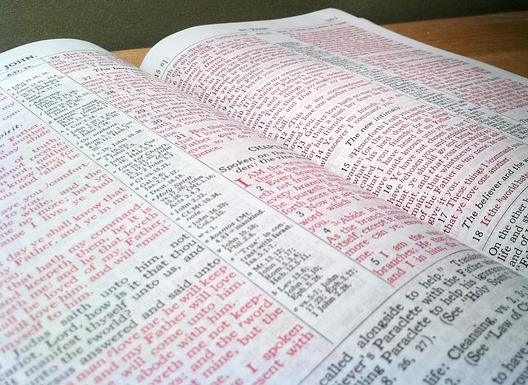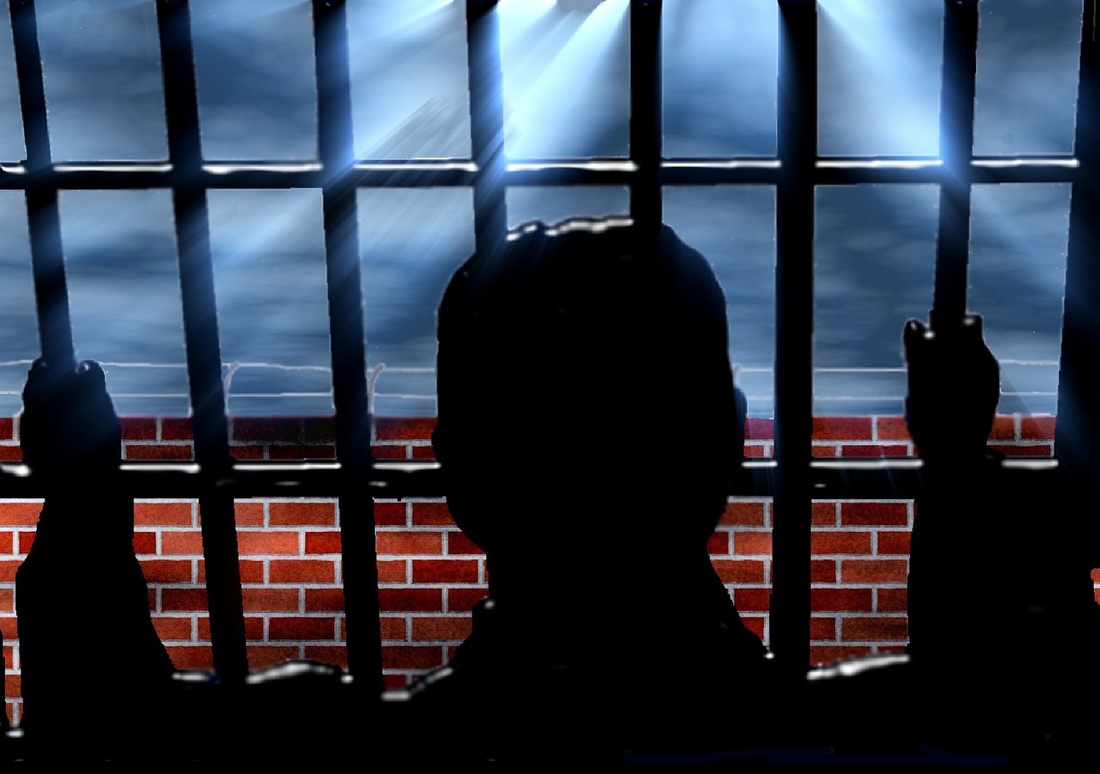Jeremiah 52 Lessons from the textThe Fulfillment of Divine Prophecy Verse three states that through the anger of the Lord, King Zedekiah rebelled against Babylon. This almost sounds like God is saying that in His anger, He led Zedekiah to rebel against Babylon so that Babylon would destroy Jerusalem. Since God does not encourage anyone to sin, what is the Scripture saying? To help understand this tension, consider the following. God plainly tells people of the consequences of sin. He warns Israel of a coming judgment (captivity) and destruction for the sins of the nation through prophecy (Jer. 25:4-18: ). God gives warnings so that people can repent. He gives humans the knowledge of the consequences of sin so that we can choose to do that which is better, which will in turn lead us to good consequences. If we see that sinning leads to destruction, surely we would turn from sin. Once we turn from evil, God can then change the decree against us from destruction to blessing. As He says through Jeremiah, “If so be they will hearken, and turn every man from his evil way, that I may repent me of the evil, which I purpose to do unto them because of the evil of their doings” (Jer. 26:3 ). God does not want to deliver the consequence of destruction on His creation. But He must punish sin. Therefore, He gives warnings in the hopes that people will listen and choose good over evil. Unfortunately, people, like the Jews of Jeremiah’s days, do not listen. The Jews continued in idolatry and rejected God’s prophet, Jeremiah. Nonetheless, God continued to plead with the people to not sin by additional messages and prophecies (Jer. 27:6-14). He exhibited great patience in repeating the consequences for sin. He is like the patient parent who, instead of whipping the child at the first trespass, continues to calmly tell the child to not stick his hand in the fire. Israel is like the child who, ignoring the parent, continued to stick his hand in the fire, not realizing that he was burning his hand. This behavior continued until finally the child realized that he had burnt his hand so bad that he could not use it anymore. The key underlying all of this is prophecy. God warns of events and judgments that will come to pass unless we repent. He gives us plenty of time to repent and gently repeats the consequences if we continue to sin. Seeing that we continue to rebel, God allows our very actions to be the cause of our own destruction; we end up judging ourselves by creating situations and circumstances which destroy us. The very thing that God warned of has then come to pass. Prophecy has been fulfilled. Such is why it is so essential to pay attention to prophecy. It is God warning us of the coming consequences to our own actions unless we repent. Verse by Verse Commentary1-34 Jeremiah repeats almost verbatim the account found in II Kings 24:18-25:30. He adds some additional information not found in II Kings, such as exactly how many Jews are carried captive. 8-11 Note that this fulfills Jeremiah’s prophecies against Zedekiah (Jer. 21:7, 11-14, Jer. 24:8, Jer. 32:4-5). 16 Nebuzaradan left some of the poor to work in the fields and vineyards. Nebuchadnezzar, like Assyria and Egypt before him, wants to exact the goods of the land for his prophet. Each year there will be a tax of goods and money to be imported to Babylon to increase the conquering nation. 17-23 Baylon is interested in the riches of gold, silver, and brass on two accounts. First, it is the symbol of worship for Jehovah; by taking the sacred items, the Jews are supposedly left without a way to worship their god, placing them dependent on Babylon for worship. Second, these are great riches to add to the treasure house of Babylon. As rapidly as the nation is expanding, it needs valuable metals to fund its armies and growing borders. 24-25 Jeremiah records additional information regarding the people taken captive. This includes details about the temple officers, an eunuch, and two additional men from King Zedekiah’s council. Nebuchadnezzar put to death the religious officers along side the political leaders to symbolize complete conquest over Judah’s land and God. 28-30 Jeremiah records that four thousand six hundred are taken to Babylon. Ezra records that almost fifty thousand Jews return to Judah after Cyrus’ decree to liberate the Jews and rebuild the temple (Ezr. 2:64-65). This stark contrast in numbers can be partially explained by the first deportation where at least ten thousand Jews were taken captive (II Ki. 24:14). Furthermore, God promised to bless the Jews in Babylon by building them up and planting them (Jer. 24:4-7). 31-34 Jeremiah concludes his book with the hope of restoration; just as Jehoiachin is restored to a place of honor, even so shall the Jews be restored when God has finished fulfilling the time of their judgment for their sins. God’s final message to all of His people is hope. ___________________ Thank you for your faithfulness in studying God’s word. Please comment below to share what you learned from today's lesson.
1 Comment
Isaac kayabo
3/27/2024 03:41:08 am
Wonderful
Reply
Leave a Reply. |
Devotional Categories
All
Archives
September 2023
|
|
Join my mailing list!
|
Thank you!You have successfully joined our subscriber list. |
|
© 2024 Melissa Beaty
|

